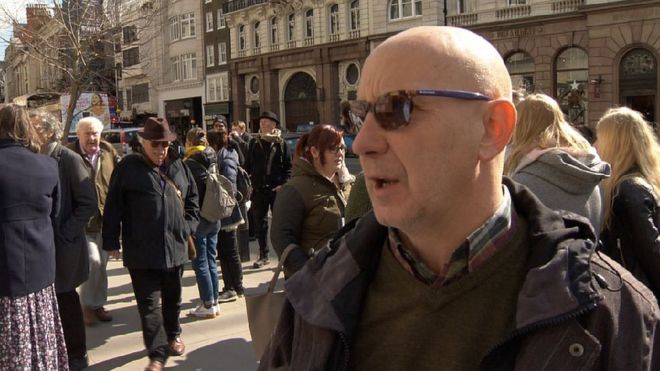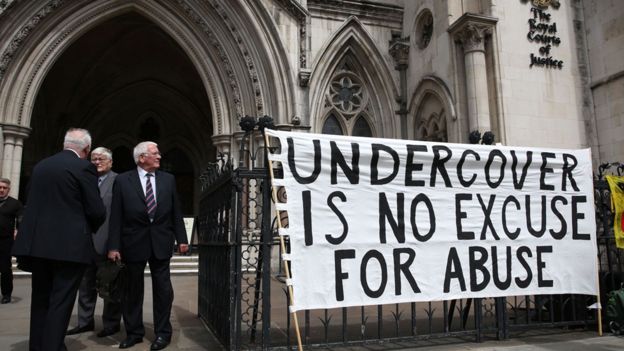http://www.bbc.co.uk/news/uk-43507728
'Metropolitan Police admits role in blacklisting construction workers

Scotland Yard has admitted Special Branch officers passed information to a controversial network that blacklisted construction workers.
It follows a six-year battle to find out if the Metropolitan Police supplied the intelligence on trade unionists.
The force says its investigation had "proven" the allegation, which will be investigated by a public inquiry.
Workers who say they were unfairly barred from jobs have already received millions of pounds in compensation.
In 2016, the union Unite reached a settlement with construction firms that resulted in 256 workers sharing more than £10m in compensation.
At the heart of the claims, which were made by hundreds of workers, was evidence that firms accessed a "blacklist" that logged workers' trade union activities.
The list was used by dozens of construction firms to vet those applying for work on building sites.
When the files were found to contain details of individual's political activities, the workers demanded that Scotland Yard disclose whether undercover police had colluded in supplying intelligence.

The Blacklisting affair
- The blacklisting scandal came to light in 2009 following a raid by the information commissioner's office on an organisation called the Consulting Association
- It uncovered a list of more than 3,000 workers - which in some instances also included details of personal relationships and their political activity as well as their trade union links on building sites
- Eight firms which used the list were sued by the workers: Carillion, Balfour Beatty, Costain, Kier, Laing O'Rourke, Sir Robert McAlpine, Skanska UK and Vinci
- The eight firms issued an unreserved apology for their part in the system
- It's thought that more than 700 workers shared £75m in settlement compensation - with many others having earlier settled for smaller amounts

In a letter to the workers' lawyers, Deputy Assistant Commissioner Richard Martin said the findings of the Metropolitan Police's internal investigation, completed two years ago, were so sensitive that they were sent directly to the then commissioner.
The letter states: "Allegation: Police, including Special Branches, supplied information that appeared on the Blacklist, funded by the country's major construction firms.
"The report concludes that, on the balance of probabilities, the allegation that the police or Special Branches supplied information is 'proven'.
"Material revealed a potentially improper flow of information from Special Branch to external organisations, which ultimately appeared on the blacklist."
 GETTY IMAGES
GETTY IMAGES
Dave Smith, of the Blacklist Support Group, says a 36-page file on him - disclosed to him during the original investigation by the information commissioner - included details of his trade union work and information that appeared to have come from undercover monitoring of his political campaigning.
"When we first talked about police collusion in blacklisting, people thought we were conspiracy theorists," he said.
"We were told, things like that don't happen here. With this admission from the Met Police, our quest for the truth has been vindicated."
- Undercover policing inquiry: Chairman urged to quit
- Can the undercover police inquiry get to the truth?
Evidence given to Parliament suggested that one undercover officer who infiltrated Mr Smith's union was Mark "Cassidy" Jenner, a member of Scotland Yard's now disbanded Special Demonstration Squad (SDS).
The SDS's activities are at the heart of the long-delayed public inquiry into alleged abuses by undercover police.
While Scotland Yard's letter says there is no evidence that SDS officers passed information to the blacklist network, a separate document published by the inquiry has revealed the existence of a unit called the "Industrial Intelligence Section".
In a statement, Scotland Yard said it had apologised for the delay in releasing the outcome of its blacklist the investigation.
"Allegations about police involvement with the 'Blacklist' will be fully explored during the Undercover Policing Public Inquiry," it said.
"At this stage the MPS will await the conclusions of the UCPI before considering what steps should be taken next."'
No comments:
Post a Comment